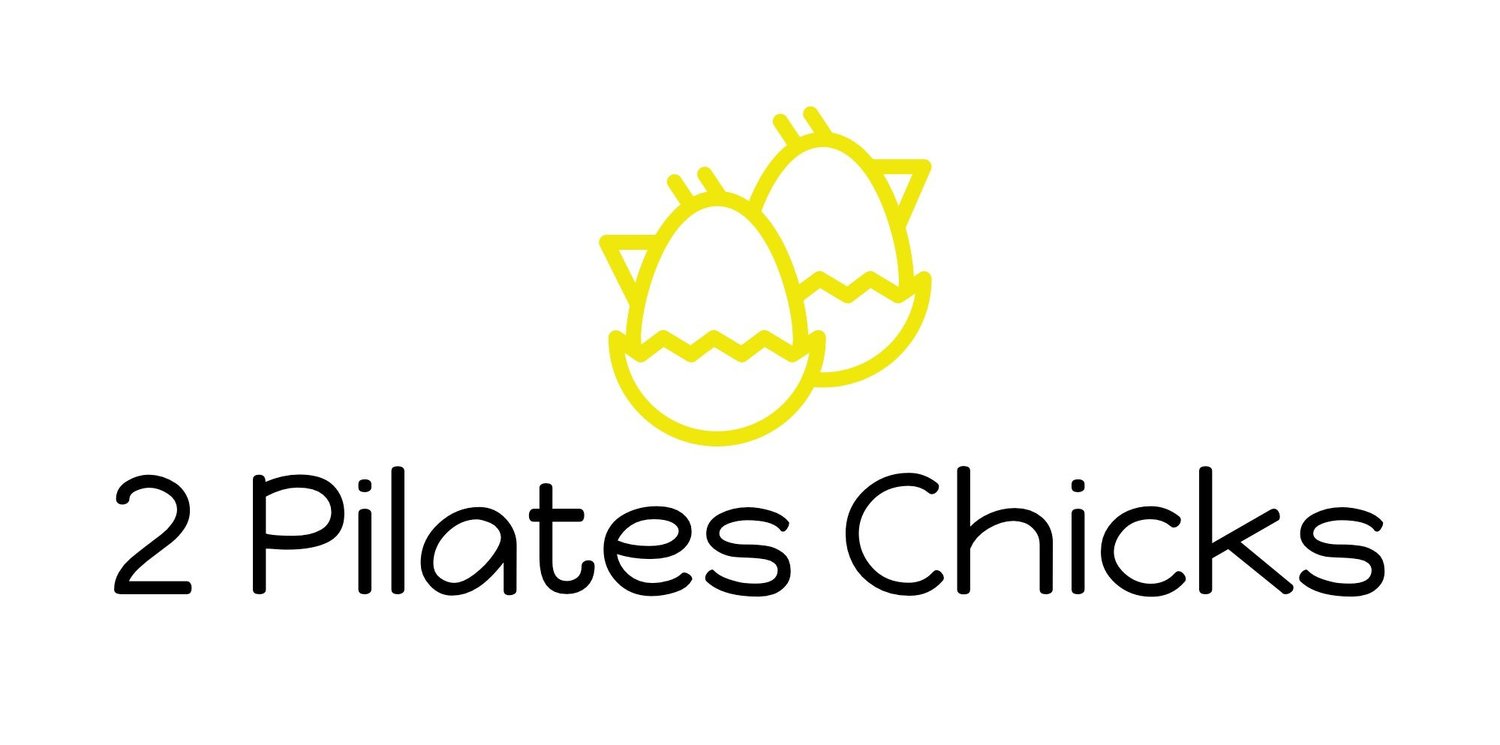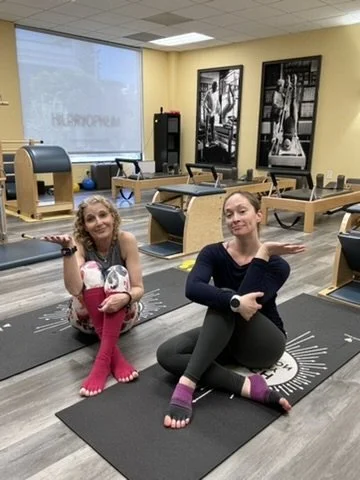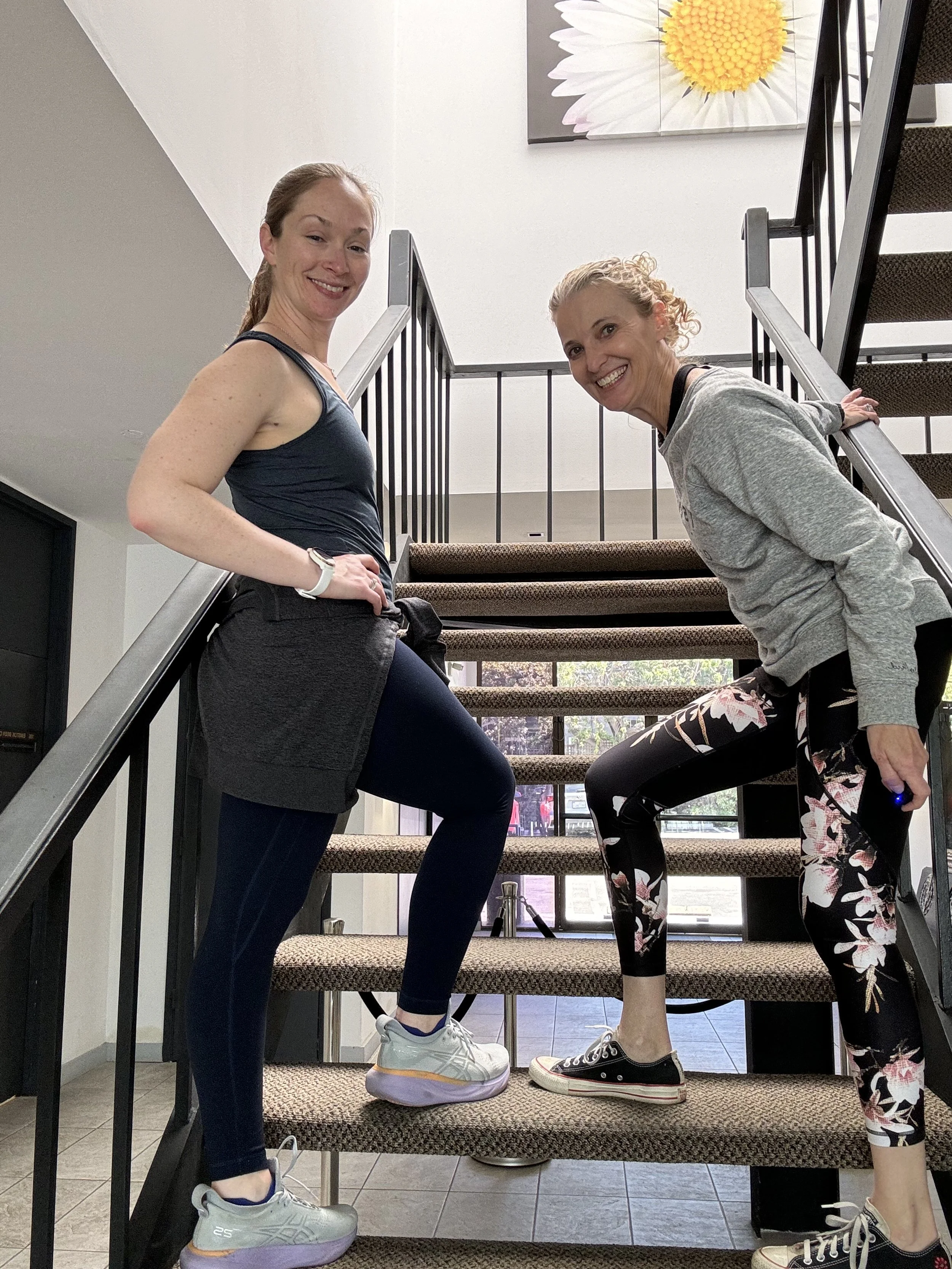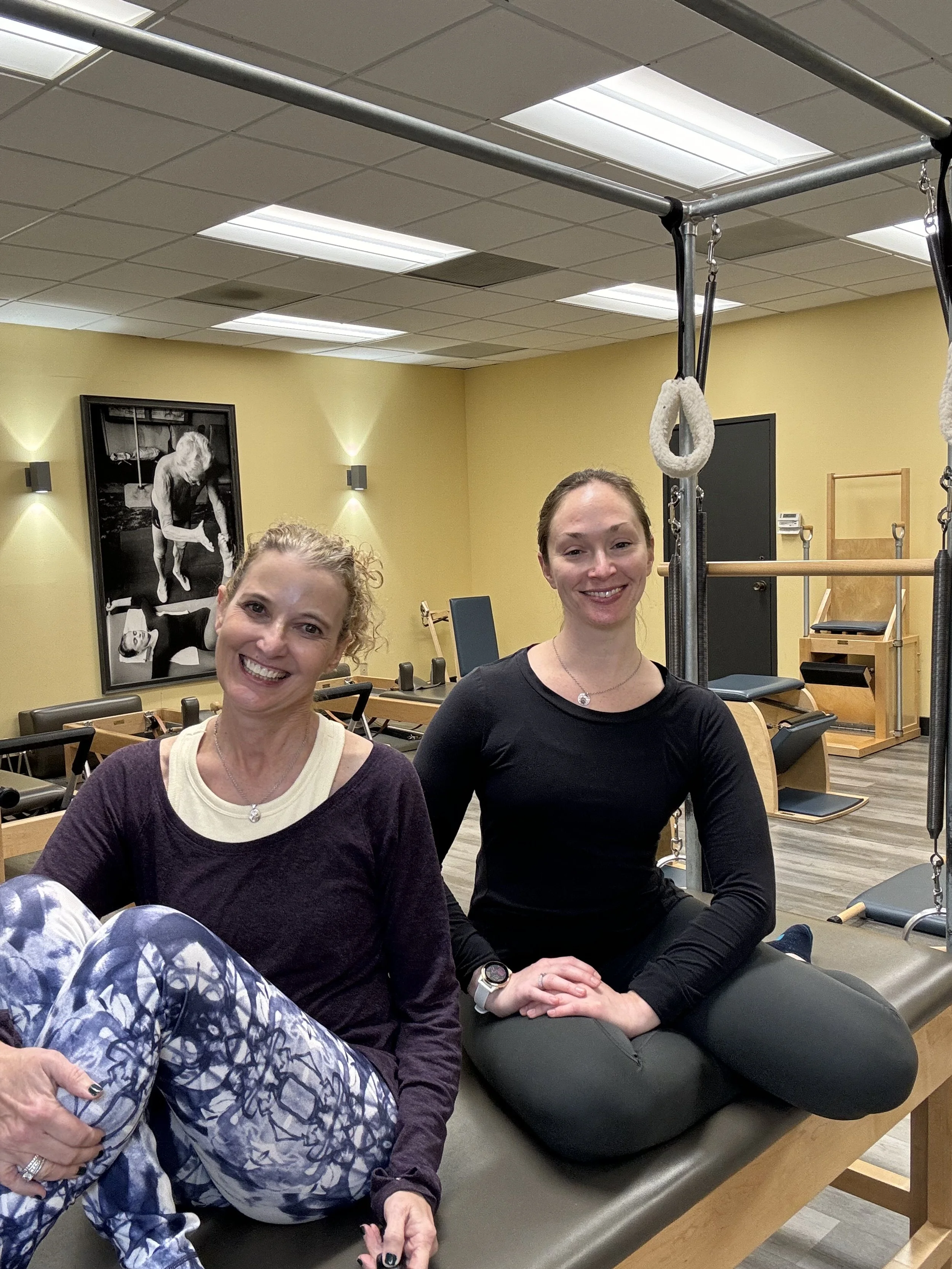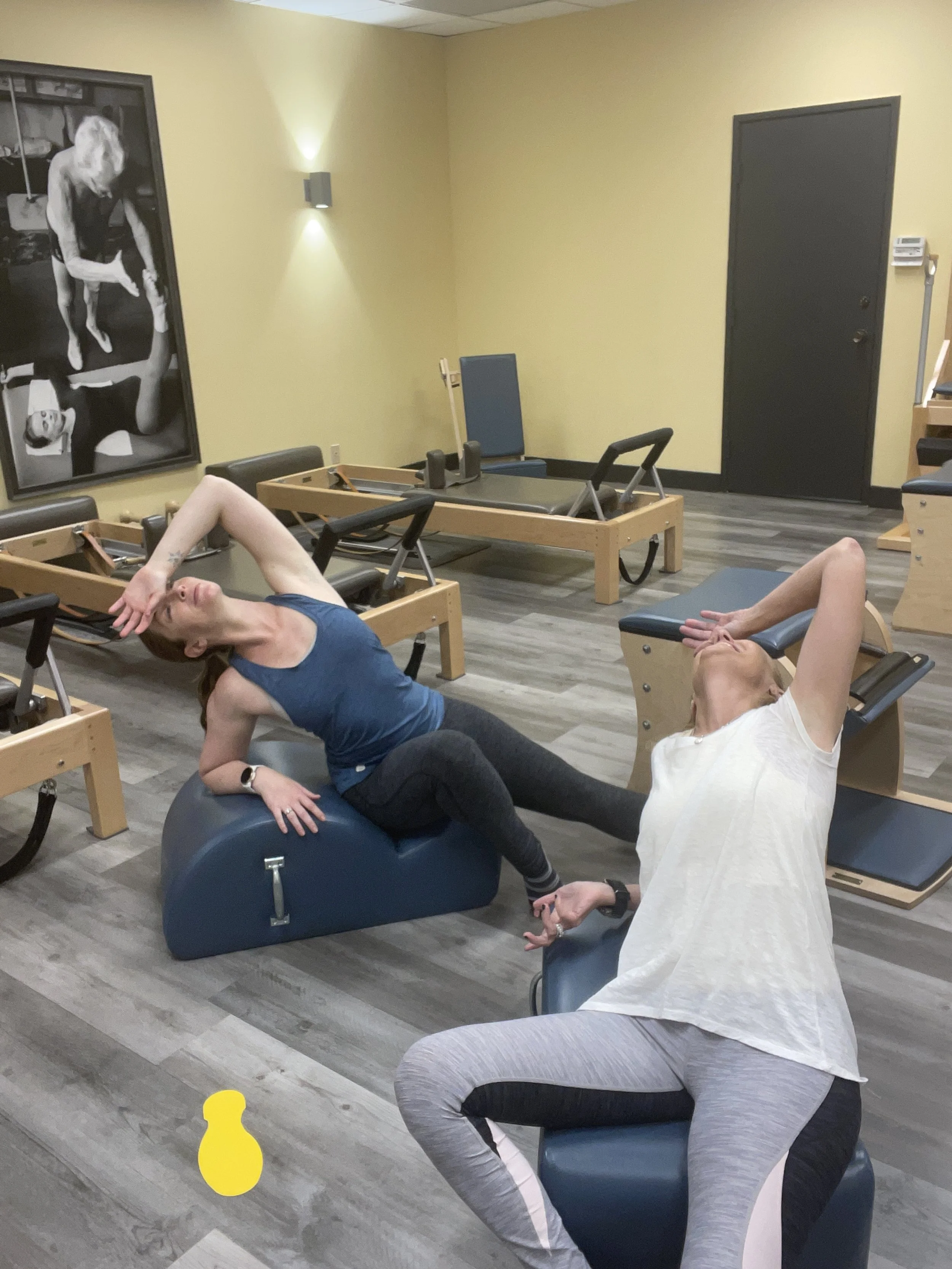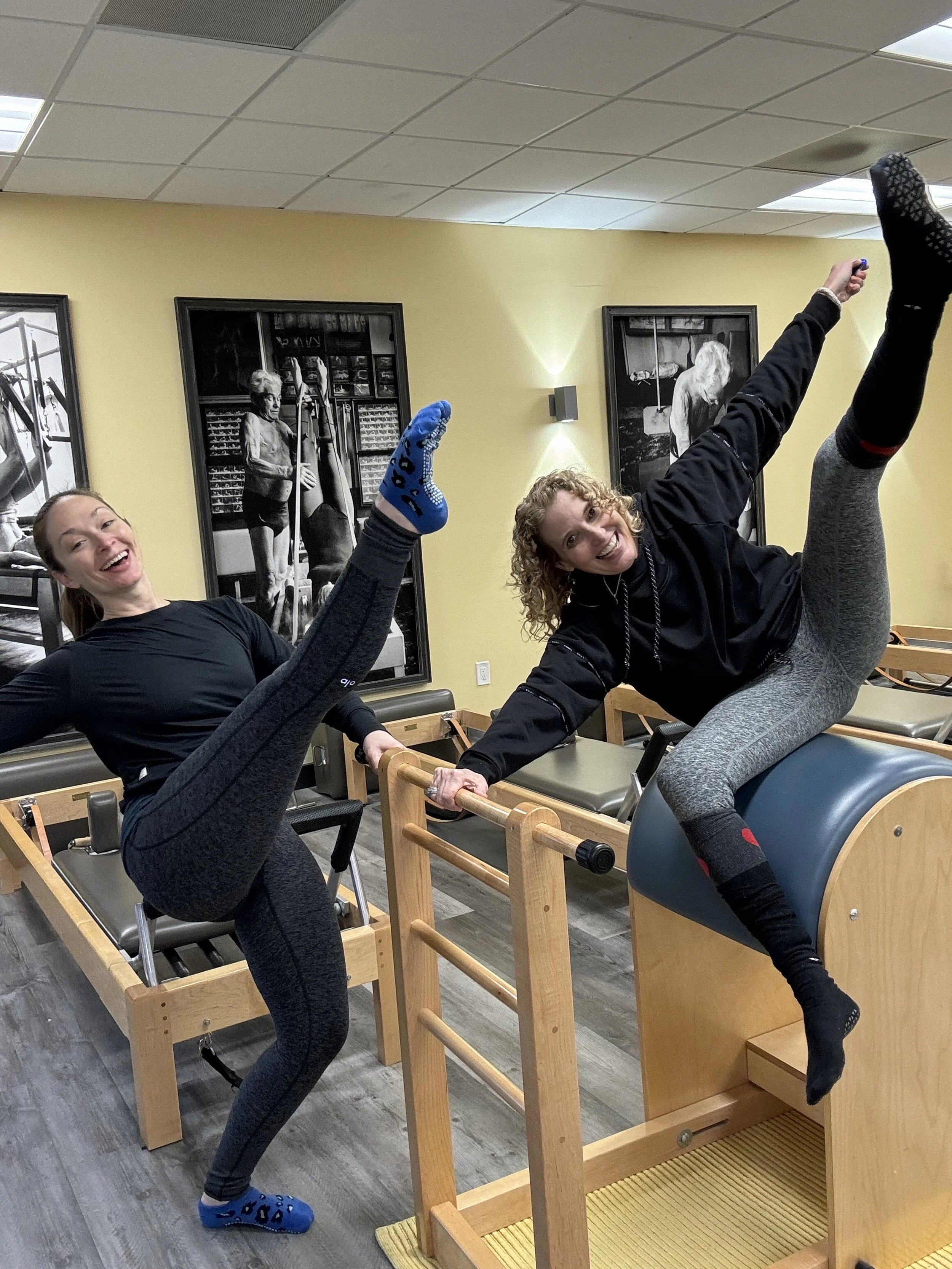What is Critical Self-Talk in Pilates?
What is critical self-talk? Why are self-criticism and perfectionism common in Pilates teachers? How can we get out of that loop of criticism in our teaching?
In season 5, episode 4, "Critical Self-Talk in Pilates", we dive into the interconnected cycle of perfectionism, criticism, and imposter syndrome and how this influences our teaching. This impacts both teachers and clients within our Pilates and movement practices.
Self-doubt and negative self-talk are pervasive in professionals of many different practices including artists, actors, dancers, and teachers. Many famous, successful actors discuss experiencing limiting self-doubt and imposter syndrome. Perfectionism is so prevalent in any artistic or movement-based practice.
So why does this combination impact many creative, thoughtful, and sensitive professionals?
Often, negative self-talk and self-criticism come from comparing ourselves to others. As new teachers, we tend to watch other more experienced teachers and wonder how they know everything they are doing, feeling like we will never achieve the same level of experience or success. Even as experienced teachers, we see what others are doing and think we don’t know anything or aren't good enough. Comparison causes anxiety and self-doubt, increases stress, reduces successful thinking, and limits us in our professions and practices.
Instead of criticizing ourselves because we're not the same as other teachers, we can embrace everyone's individualities, unique strengths, and style. We can learn from how others think differently from us, and adopt new ways of teaching that we relate to, broadening our abilities and what we offer clients. We all come from different schools of movement, and vastly different backgrounds, and Pilates works differently for each of our own body's needs. Instead of negatively comparing ourselves to that we don’t know enough or aren't good teachers because someone else has a different approach, we can see how another teacher does an exercise, pick it up, and adapt it in the way it works best for us and our client's practices.
Self-doubt and critical self-talk increases from perfectionism. Perfectionistic thinking assumes we have to act a certain way as teachers, that we have to look a certain way or be able to do every exercise perfectly before we can teach something, or that a client has to look a certain way or be able to achieve every exercise we teach them to prove we're good at teaching Pilates. Similarly, clients dealing with perfectionism, may ask us if they're doing it "right", or get frustrated with how they look in the exercise, not wanting to try new or challenging exercises when they think they might fail.
Critical self-talk, perfectionism, self-doubt, and imposter syndrome are tightly intertwined, forming a web of negative internal dialogue. This can become exhausting carrying this narrative around with us every day, constantly fighting internal chatter telling us we're not good enough or not doing something well. This becomes a challenging cycle to break. The cycle of self-doubt and imposter syndrome is often unconsciously repeated to ourselves, eventually becoming ingrained beliefs.
The first step is to notice.
Become aware of when we have this negative narrative in our head so that we can become conscious of this pattern. Awareness is the first step to making any change. Start to become aware of the internal dialogue, when it occurs, what may trigger it, and how it feels in the body.
Next, change the active effort and shift the perspective.
Try to change the actual message we're telling ourselves, and analyze the thoughts behind it.
At first, this will be quite an effort to consciously change what we're thinking, just like when we first try a new exercise, but eventually it becomes more natural and available to do so. We can change the message to focus on curiosity instead of critique or comparison. Instead of: "I don’t know anything, they are better than me…" we can ask ourselves what it is we think other teachers do well, and what we can learn from them. Essentially this changes the active effort of critique from negativity to curiosity, creating a positive effort.
It's important to remember mistakes are a normal part of every process, and mistakes help us learn and grow. Active engagement is key in any new endeavor. We start by trying, inevitably making mistakes, learning from them, and then trying again, many times over. Striving for perfection before taking action is impossible and limits our achievements. Instead, embrace action, try, do, experience, see what happens, and adapt from there.
Finally, thoughts are not facts.
During a cycle of negativity, whether it's self-doubt, imposter syndrome, perfectionism, comparison, critical self-talk, or all of the above, it's important to remind ourselves that just because one is thinking or feeling something does not mean it is true. Intrusive thoughts feel real when they occur, and are extremely challenging to navigate. We must actively remind ourselves, especially when having these thoughts, that just because we think something does not mean it is true.
Thoughts are fleeting reactions to our past and current experiences, and they can pass, even if they feel heavy and seem to linger for a while. We can do our best to observe our thoughts as a mindfulness practice, not attaching an identity to these negative thoughts, eventually moving forward. It's challenging, but like Pilates, we improve with time and practice.
There is no such thing as perfection, especially in practice. Pilates is a practice both for the teacher and the client. We spend years "perfecting" our practices. But it is a continual process, of learning, curiosity, creativity, and constant adaptation. We see how our bodies change in response to movement over the years, and how our clients adapt as they learn more.
We can try to be a "good enough" person, teacher, or client, instead of perfect. We can be the best we can at the time and as we learn more we do better. We can have a healthy curiosity, desire to learn more, strive to be better, and change our practice as we watch other teachers with their clients, adopt the practices that feel right to us. When we hold on to the side of comparison and negative self-talk, we lose all the positive growth potential for ourselves and our clients. This critical self-talk impacts our minds, careers, and bodies, increasing anxiety and fatigue. Even when we're trying to rest we have the critical loop which keeps us from recovery even when we're not in the studio. This puts our nervous system in a high alert state, increasing adrenaline and cortisol leading to chronic fatigue, pain, and higher rates of burnout. If we're also on our phones all day, reading the news, on social media, and dealing with other life stressors, this adds to the load when we're already primed for negative thinking and is unsustainable.
As Pilates teachers, we're in a career of helping others, so we have to take care of ourselves first. Put a timer on the phone apps, especially social media, and don't start the day with the news cycle. Find a nice pre-bedtime routine that calms the nervous system, and an invigorating post-wake-up routine to start the day with self-care.
We are in a career that makes a difference every day. We're helping improve people's daily lives whether that's increasing a client's range of motion and strength to reduce pain, improving stamina for activities of daily living, achieving a specific athletic goal, or simply feeling connected and invigorated in the studio.
It's easy to forget this when we're in the daily grind of schedules and teaching, especially when in a negative spiral of critical self-talk, self-doubt, and imposter syndrome, but we help people every day.
Especially after a long day in the studio, remember…we're substantially helping people every day.

